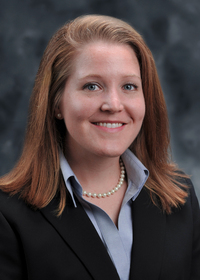Information Possibly Outdated
The information presented on this page was originally released on January 7, 2002. It may not be outdated, but please search our site for more current information. If you plan to quote or reference this information in a publication, please check with the Extension specialist or author before proceeding.
Veterinary students to study food inspection
MISSISSIPPI STATE -- Much of the safety of the U.S. meat supply depends on veterinarians, a specialty area two Mississippi State University students are soon to pursue.
Junior Jonathan Mitchell and freshman David Smith, both from Jackson, are two of 12 students selected from 55 applicants nationwide to participate in the Food Safety Inspection Service's Veterinary Student Employment Program. This 16-week program immerses veterinary students in several areas related to the safety of meat and poultry products and is sponsored by the U.S. Department of Agriculture and the Food Safety Inspection Service.
"I've been interested in the food safety aspect of veterinary medicine," Mitchell said. "This program allows me to take some time as a senior to see all the different aspects of the job."
Mitchell's travel expenses will be paid and he will receive a salary as he spends the time in a poultry or red meat processing plant, in a Food Safety Inspection Service laboratory, at the Technical Service Center in Omaha, Neb., and at the agency headquarters in Washington, D.C.
Hart Bailey, assistant professor of food safety at MSU's College of Veterinary Medicine, is coordinating the career education program for the university. He said of the 14 veterinary colleges that had students apply, only MSU and Texas A&M had two students selected.
"Traditionally, veterinarians' role in the food industry has been in the production side working with disease or in managing the inspections during processing," Bailey said. "One of our goals in the food safety program at CVM is to increase veterinary students' awareness of the whole spectrum of food safety as a professional career path.
"As legislation and market concerns related to food safety continue to increase, new opportunities are being created for interested veterinary students to pursue," he said.
Students involved in the training program will be mentored by a Food Safety Inspection Service veterinarian. They will spend time working as in-plant veterinarians to ensure the safety of meat and poultry products. They will also spend a great deal of time with other agency veterinarians learning the variety of roles they play in public health regulation.
Bailey said legislation passed in the early 1900s required veterinarians to inspect meat and poultry. Originally, the emphasis was on preventing diseased animals from being processed for food, but the emphasis has shifted. In 1996, Congress passed the Pathogen Reduction Act which focused more on microbial safety issues.
"The new systems are designed to reduce microbial contamination on raw food," Bailey said. "The Food Safety Inspection Service wants veterinarians to work not just in meat inspection in the plants, but to eventually be involved in the production process back to the farm."
The career training program was designed to widen the horizons of those students who participate. This is the first year of the program. Each student who successfully completes the training will be offered a job with the agency, which currently employs 1,100 veterinarians nationwide.
For more information, contact: Dr. Hart Bailey, (662) 325-7726



